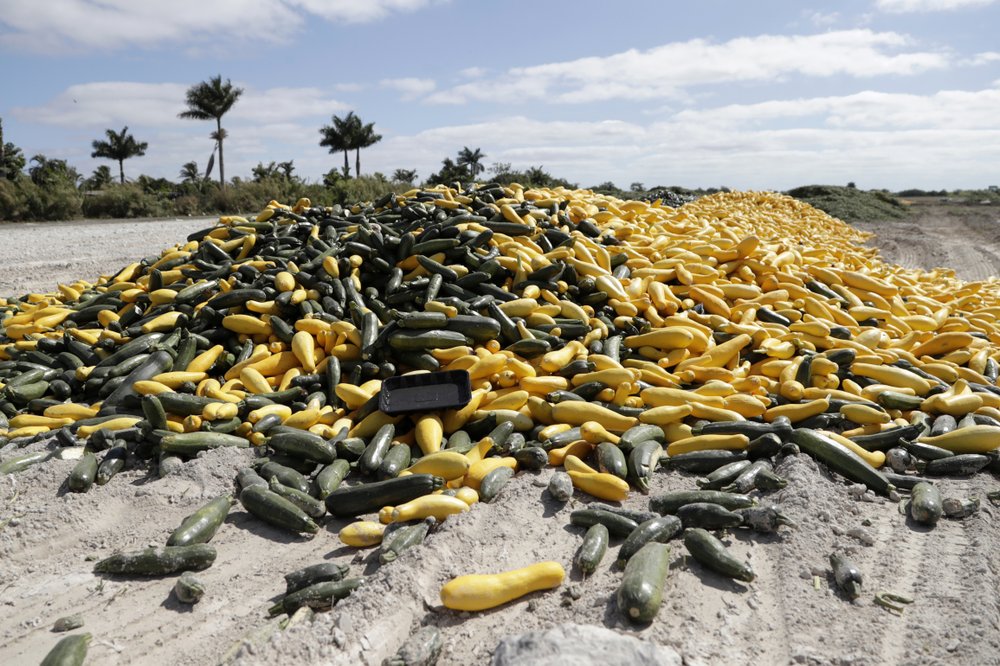Coronavirus claims an unexpected victim: Florida vegetables
By Tamara Lush
8 April 2020

PALMETTO, Florida (AP) – Mounds of harvested zucchini and yellow squash ripened and then rotted in the hot Florida sun. Juicy tomatoes were left to wither — unpicked — in farmers’ fields.
Thousands of acres of fruits and vegetables grown in Florida are being plowed over or left to rot because farmers can’t sell to restaurants, theme parks or schools nationwide that have closed because of the coronavirus.
Other states are having the same issues — agriculture officials say leafy greens in California are being hit especially hard, and dairy farmers in Vermont and Wisconsin say they have had to dump a surplus of milk intended for restaurants.
With most of its harvests in the winter months, the problem is acute in Florida. For example, a few dozen people clamored to buy 25-pound (11- kilogram) boxes of Roma tomatoes direct from a packing plant over the weekend in Palmetto, a city on the western coast.
The cost per box? Just $5.
“This is a catastrophe,” said tomato grower Tony DiMare, who owns farms in south Florida and the Tampa Bay area. “We haven’t even started to calculate it. It’s going to be in the millions of dollars. Losses mount every day.”
Florida leads the U.S. in harvesting tomatoes, green beans, cabbage and peppers this time of year. While some of the crops are meant for grocery stores, many farmers cater solely to the so-called food service market — restaurants, schools and theme parks — hit hard as cities and states have ordered people to stay home and avoid others.
The loss has created a domino effect through the farming industry, Florida’s second-largest economic driver. It yields $155 billion in revenue and supports about 2 million jobs. [more]


